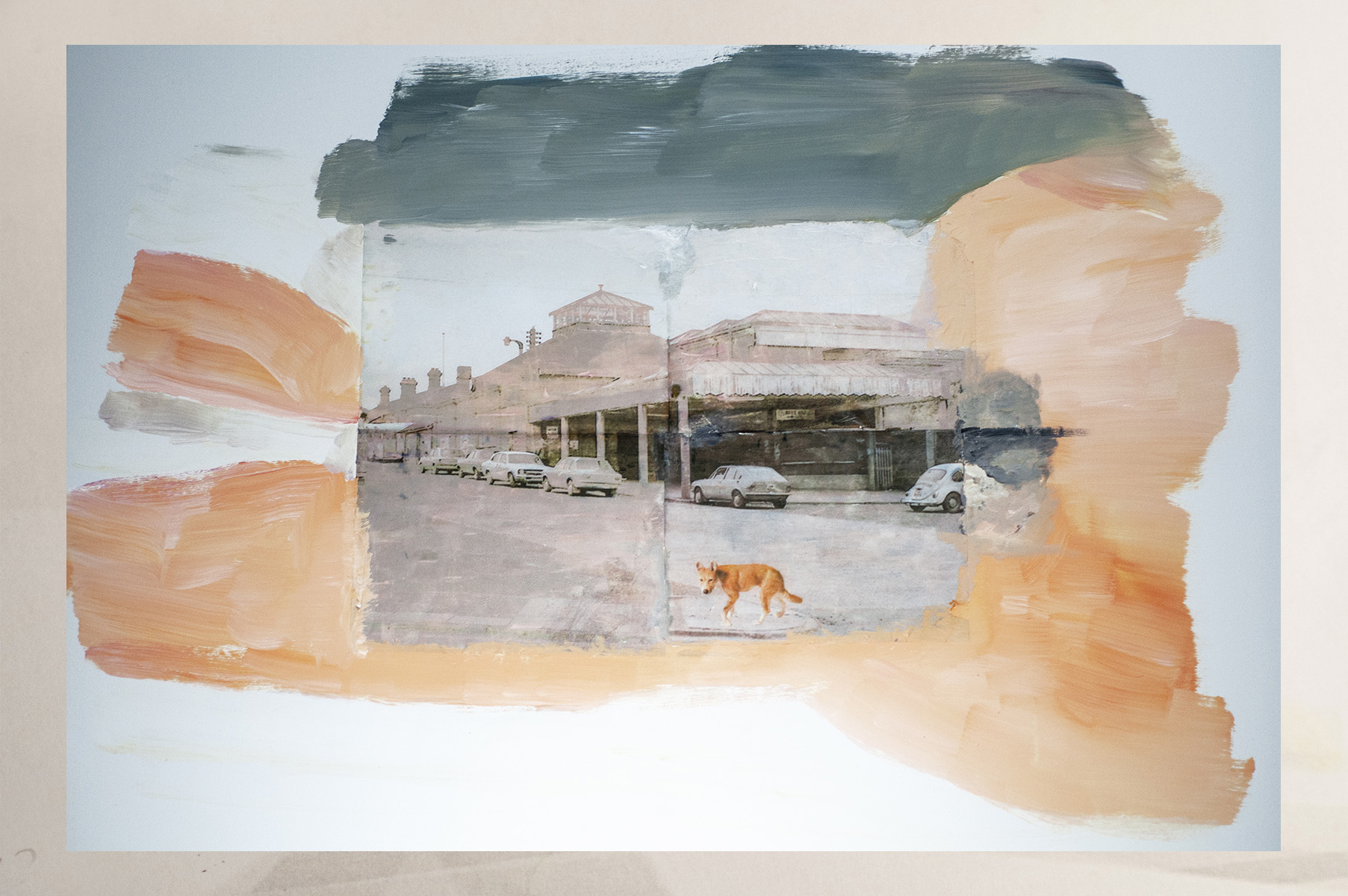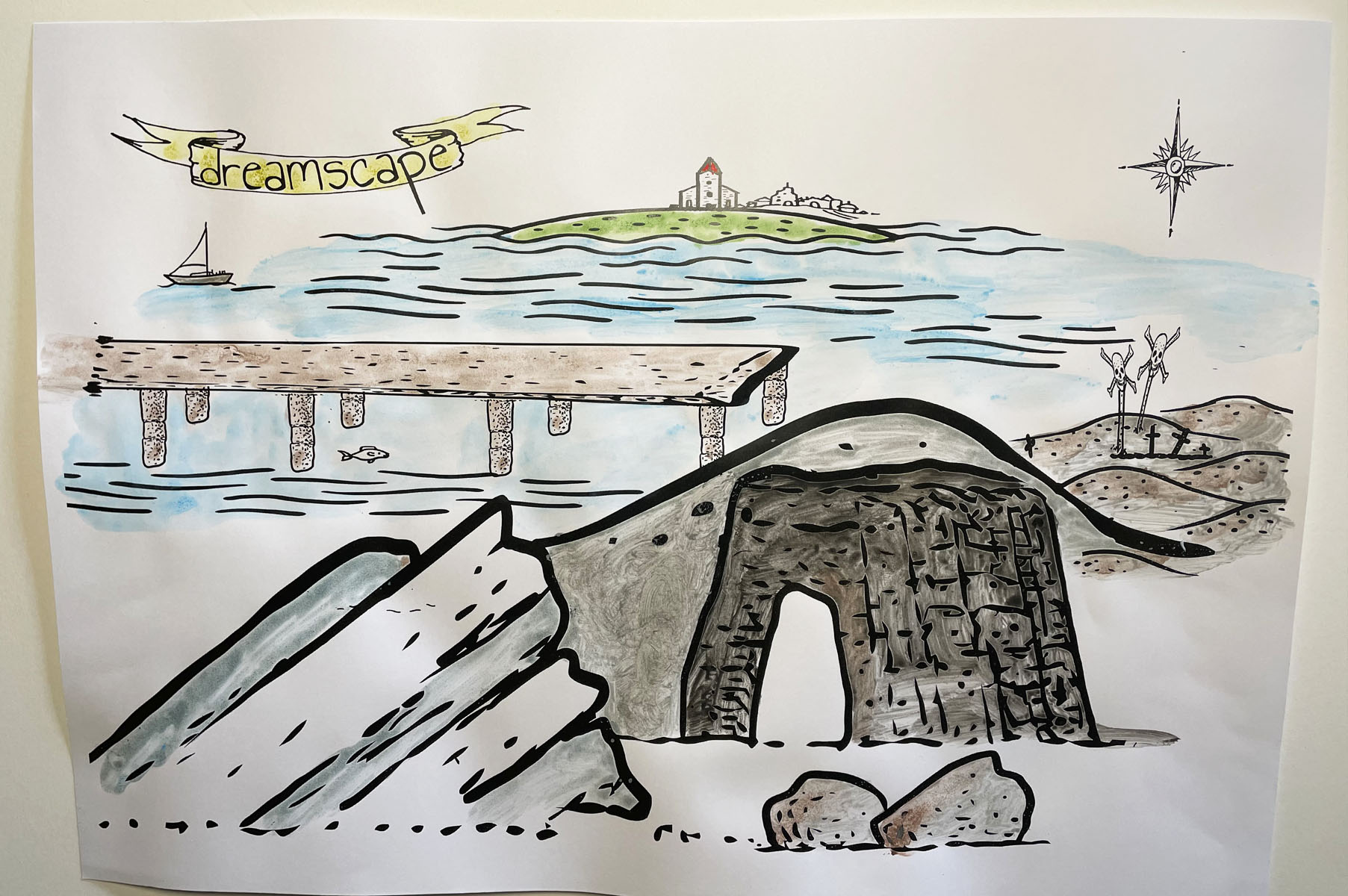Category: my-profile
Daniel Xavier Fleming
formations
Daniel Xavier Fleming
(academic pen-name Dan Fleming)
project director, 1996-2001
formations.org.uk
-
r&d project
eprints
textbook
collaboratory
resource bank
experiment
research
about
Formations was
 Daniel Xavier Fleming, April 2022: 'The JISC/eLib section here sets the scene. The challenge when we launched the eLib Formations project in 1996 (formations.org.uk) was that web protocols, then only some 5-6 years old, were still insufficient to support our vision of an online collaboratory. Eprints (a key aspect of several eLib projects) were essentially academic papers being posted and indexed in online repositories. We were interested in a potentially richer process; in the ways that hyperlinking and collaboratively evolving content might extend the emerging notion of eprint repositories into something more dynamic and organic, with perhaps unanticipated outcomes.
Daniel Xavier Fleming, April 2022: 'The JISC/eLib section here sets the scene. The challenge when we launched the eLib Formations project in 1996 (formations.org.uk) was that web protocols, then only some 5-6 years old, were still insufficient to support our vision of an online collaboratory. Eprints (a key aspect of several eLib projects) were essentially academic papers being posted and indexed in online repositories. We were interested in a potentially richer process; in the ways that hyperlinking and collaboratively evolving content might extend the emerging notion of eprint repositories into something more dynamic and organic, with perhaps unanticipated outcomes.  It was a precocious vision at that time. But the 'ah-ha' moment for me was when pioneering groupware company Lotus launched their Domino server (December 1996), providing a web layer for their existing and already legendary groupware product Lotus Notes. Lotus called it 'an interactive web applications server'. That was new language at the time.
It was a precocious vision at that time. But the 'ah-ha' moment for me was when pioneering groupware company Lotus launched their Domino server (December 1996), providing a web layer for their existing and already legendary groupware product Lotus Notes. Lotus called it 'an interactive web applications server'. That was new language at the time.
Thanks largely to project technical officer Simon McLeish, we were able to combine the metadata and document handling capabilities of available eprints platforms, developed in the first phase of eLib, with the powerful and then unique back-end collaborative tools in Lotus Notes, long before the web's native protocols could support similar things. The technical challenges were not inconsiderable. For the last three years of the project, I carried a pager more or less day-and-night, so that I could respond to our crate-sized server in its dedicated university office, should it get into technical difficulties and call me! But Domino proved highly reliable and our mashup of Notes+eprints took on a life of its own, eventually generating the material for an innovative and hefty textbook, an unexpected but welcome outcome emerging from the convergence of content that accumulated over the life of the project.
Looking back, I realise that a key factor was the faith shown by Professor Nicky Gardner (then Nigel Gardner) in what we were attempting. Always the champion of academic innovation, Nicky, in an executive role with JISC and chairing our project board, consistently saw some glimmer of realistic potential in our sometimes utopian ambitions for the project.
After three years of JISC/eLib funding, we had a further three years, thanks to editorial support from Manchester University Press, sponsorship from Lotus Ireland, and 18 months of evaluation funding from our host university, a unique combination of interests for the time. The story continues in the textbook section of this site. And there's an early interview below.' (dxf)
Education
Education
Experience
Skills
unused
unused
unused
Lunused
unused
unused
unused
unused
unused
unused
unused
unused
unused
unused
unused
unused
unused
unused
unused
unused
unused
unused
unused
unused
unused
unused
unused
unused
unused
unused
unused
unused
unused
unused
unused
unused
Services
unused
unused
unused
unused
unused
unused
unused
unused
unused
unused
unused
unused
unused
unused
unused
unused
unused
unused
portfolio

View Details

View Details
Category: Undefined
Details
Context: Undefined
Materials: Undefined
Notes: Undefined
papers
citations:
Fleming, D. (1998). The Garden of Forking Paths: Forms of scholarship and the 'Formations' pre-prints system for cultural studies and related fields. Computers and the Humanities, 32 (4), 303-322.
Fleming, D. (1999). Wired scholarship: The invisible college revisited. Convergence: The International Journal of Research into New Media Technologies, 5 (1), 78-90.
The ideas in the 'Convergence' paper were developed largely in response to comments from the audiences at two conference presentations: the first at Digital Resources in the Humanities 97, St. Anne's College Oxford, UK, 14-17 September 1997; the second at Information Ecologies: The Impact of New Information Species, York, UK, 2-4 December 1998.
see also: Fleming, D. (1996) Lotus Eaters On-Line: Forming an Alliance Between Groupware and the Web in a Pre-Prints System. Ariadne: Web Magazine for Information Professionals. (This was the project's first public 'statement of intent' and offered some rather utopian preliminary observations, as well as technical and early design details about the prototype.)
eLIB
JISC/eLib in the UK National Archives
2001 eLib Formations project description
The aim of eLib was to 'transform the use and storage of knowledge in higher education institutions'. It was managed by the JISC's Committee on Electronic Information.
In 1990, Tim Berners-Lee developed the foundations for the Web: HTTP, HTML, the WorldWideWeb browser, a server, and the first website in order to manage hyperlinked documentation. Reacting to this in the UK universities sector, the Joint Information Systems Committee (JISC) was established on 1 April 1993 to innovate around networking and specialist information services. JISC was to provide national vision and leadership for the benefit of the entire Higher Education sector in the UK. Launched in 1994, the eLib programme was a key early part of this intention to innovate.
The eLib Formations project was launched in 1996, six years after the 'birth' of the web, with the aims of developing and testing an online 'collaboratory' for scholarship in a specific field and making recommendations for the future. Daniel Xavier Fleming (as Dan Fleming) was co-director of the Formations project 1996-98 (with Lynda Henderson), then sole director 1999-2001. (Lynda Henderson went on to be founder member of AimHi, the Association of Integrated Media, Highlands & Islands, Scotland, and then Managing Editor of an online news service.)
 The project's technical officer Simon McLeish (pictured) went on to work on the JISC Identity Management Toolkit, later became Resource Discovery Architect at The Bodleian Libraries, University of Oxford, and edited the 2020 book 'Resource Discovery for the Twenty-First Century Library: Case studies and Perspectives on the Role of IT in User Engagement and Empowerment' (London: Facet).
The project's technical officer Simon McLeish (pictured) went on to work on the JISC Identity Management Toolkit, later became Resource Discovery Architect at The Bodleian Libraries, University of Oxford, and edited the 2020 book 'Resource Discovery for the Twenty-First Century Library: Case studies and Perspectives on the Role of IT in User Engagement and Empowerment' (London: Facet).
Project designer Fiona O'Brien is an independent artist and graphic designer, living in Dublin.
textbook


One of the key 'given' features of the eprints system used by Formations was the Subject Tree (more technically, hierarchical sets of options for regulative document metadata). The project's biggest discovery was that the Subject Tree could develop content from an 'indeterminate heap' and take on a constitutive life of its own, as user content was tagged with metadata. 'Branches' grew or contracted as a result, and developed unplanned rhizomatous connections.
The Lotus Notes (Domino) component of the hybrid eprints/groupware system supported more 'organic' (e.g. less hierarchical) growth of this kind than a typical standalone eprints platform, especially because it supported multiple 'views' of content ('views' being a Lotus mantra at the time, a term they contrasted with the hierarchical metaphor of 'folders'). Over time, a large Subject Tree took shape, until a moment of serendipitous lateral thinking 'recognized' it as in effect a Contents structure for a potential textbook in the field. (See the 'Convergence' paper in the papers section for discussion of the terms 'regulative' and 'constitutive'.)
For the second 3-year period of its operation, Formations became in practice an editorial engine. Out of this emerged 'Formations' the textbook, published by Manchester University Press who came on board as a result of Matthew Frost's willingness to take a risk on a new if undeniably slow (!) editorial process (Matthew later became the press's Head of Editorial). Lotus Ireland kept the platform going technically with generous sponsorship (prior to Lotus being absorbed into IBM in a 2001 corporate restructuring). The textbook was published in 2000, entirely from content in the repository. The project came to a formal end the following year, though the adapted Domino server kept running happily until 2005 as an ongoing experimental testbed (and hosted an extended Glossary for the book alongside linked teaching & learning resources).
The sad moment came, after eight years of continuous running, when Daniel switched off the server and its small room became silent, on the day before he re-located permanently from the UK to Aotearoa New Zealand. The project's lifespan coincided, more or less, with Web 1.0, as we now think of it. The textbook continues to be used throughout the world.
In terms discussed in depth in the 'Convergence' paper, the project discovered a practical route to building 'constitutive knowledge' through a re-tooled early 'interactive web applications server' (Lotus's then still new definition of their platform), into which we'd integrated an eprints layer (with all the required scholarly metadata functionality). However, the project also discovered that a 'constitutive community' was not necessarily or automatically coupled to these processes but rather required editorial maintenance of the 'special value orientation' (see 'Convergence' paper p.84) underpinning the notion of 'constitutive'. This value orientation and its fostering (or sometimes failure?) in the coming 'wired' academy needed further research but this fell outside the scope of Formations at that time.
My blog
Contact
Information
unused
unused
unused








